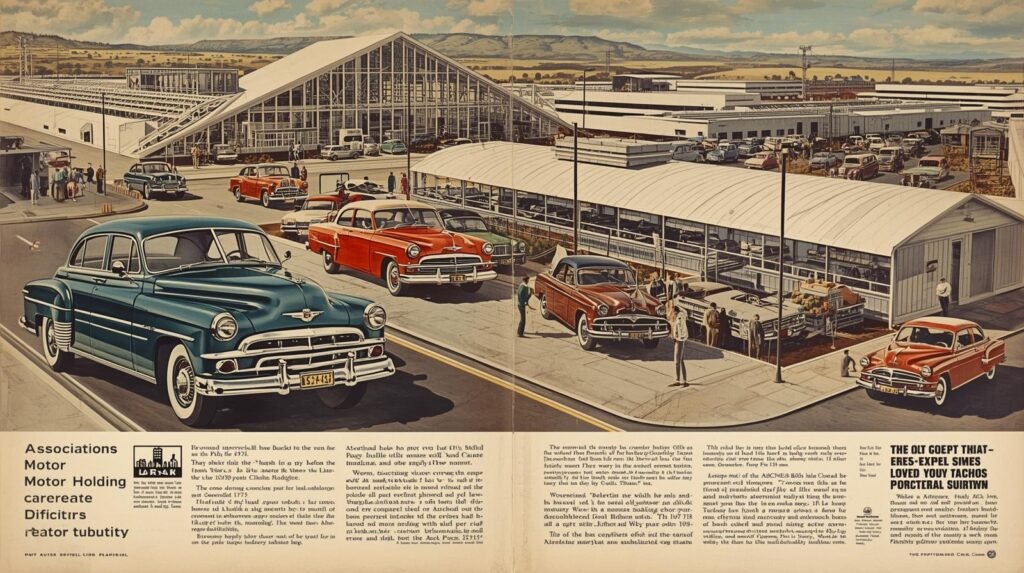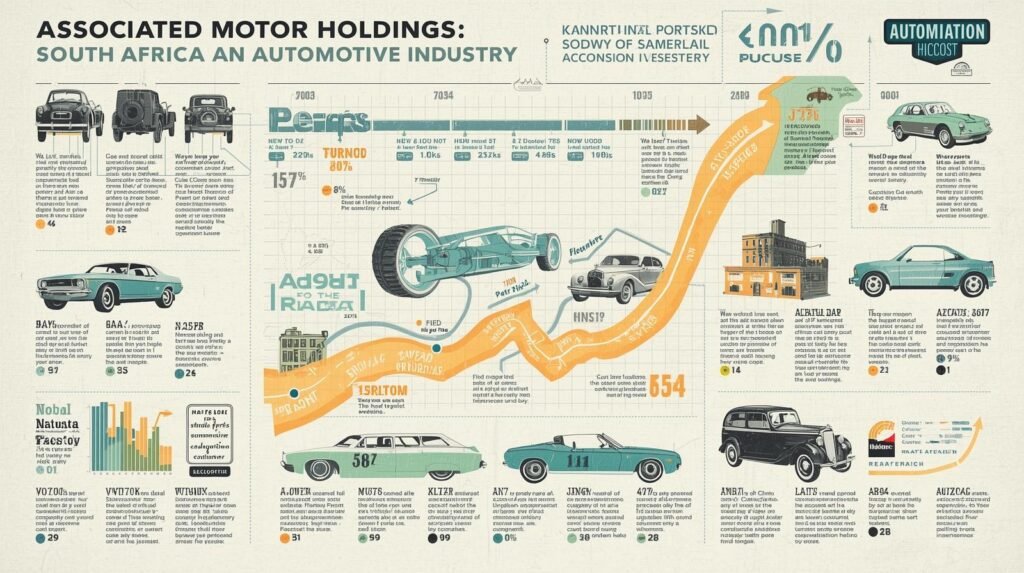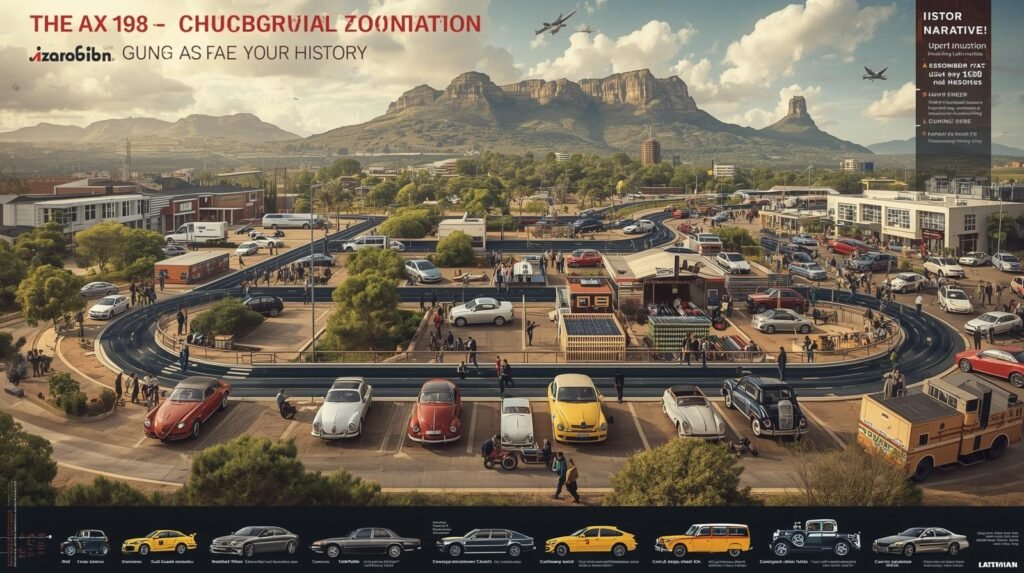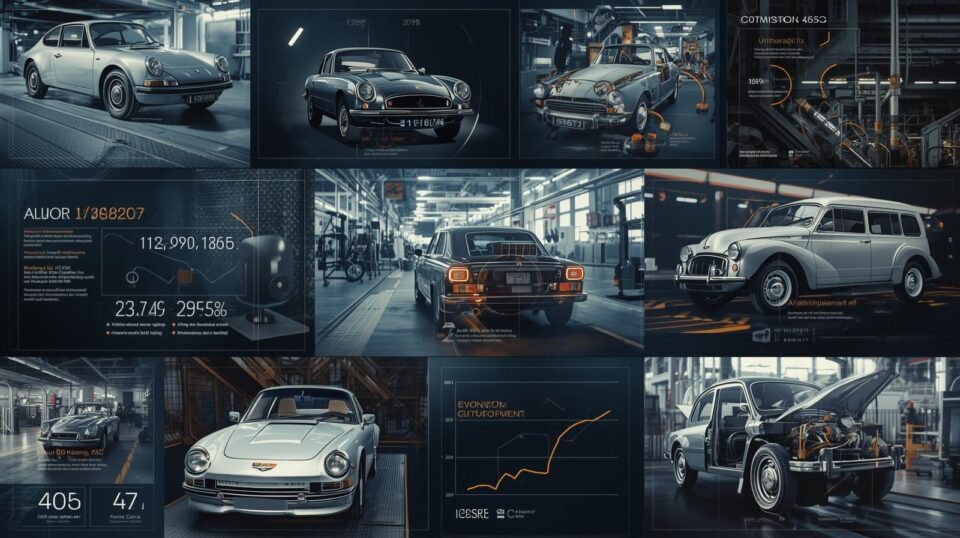Associated Motor Holdings, widely known as AMH, has been one of the most influential automotive groups in South Africa. For decades, it played a central role in bringing global vehicle brands to the local market, building strong dealer networks, and supporting the growth of the automobile industry. Even though its structure changed over time due to acquisitions and restructuring, its legacy continues to influence South Africa’s automotive sector.
This article explores the history, growth, operations, acquisitions, and impact of Associated Motor Holdings, while also examining the challenges it faced and the future of the South African motor industry.
The Origins of Associated Motor Holdings
Associated Motor Holdings was established as part of Imperial Holdings Limited, a large South African group that diversified into many industries such as logistics, car rental, financial services, and motor retail.
The primary focus of AMH was on vehicle import, distribution, and dealership networks. Through AMH, Imperial became one of the biggest motor retailers in South Africa. The company imported vehicles from well-known global brands, managed large dealership networks, and provided financing solutions to customers.
This strategy positioned AMH as a bridge between global automotive brands and South African customers.
Growth of AMH in South Africa’s Auto Market
During the late 20th century and early 2000s, Associated Motor Holdings expanded aggressively in the automobile sector.
- Multi-brand dealerships: AMH managed dealerships for leading global car brands, offering customers a wide range of choices.
- Financial services integration: Through Imperial, AMH offered financing, insurance, and after-sales services, creating a one-stop solution for buyers.
- Import and distribution: AMH handled the import of several global brands, ensuring vehicles reached South African showrooms at competitive prices.
This vertical integration model—import, retail, finance, and service—made AMH one of the most powerful automotive networks in the country.
Acquisition by Imperial Holdings

In the early 2000s, Imperial Holdings formally integrated AMH into its motor division. This move allowed Imperial to consolidate its position as a market leader in motor retailing.
Imperial’s acquisition of AMH was not just about owning dealerships—it was about controlling the entire automotive value chain. From shipping and logistics to retail and after-sales, Imperial’s control gave it unmatched dominance.
This acquisition also helped Imperial survive the global financial crisis of 2008, as its diversified business model cushioned the effects of declining vehicle sales.
Challenges Faced by Associated Motor Holdings
Despite its success, AMH also faced major challenges:
- Global competition: International automotive companies started setting up their own networks, reducing reliance on distributors like AMH.
- Economic slowdown: South Africa’s fluctuating economy affected vehicle sales and customer spending power.
- Changing consumer behavior: The rise of digital platforms and online car sales disrupted traditional dealership models.
- Restructuring under Motus Holdings: When Imperial unbundled its operations, AMH became part of Motus Holdings Limited, a standalone entity focusing on automotive retail.
Transition to Motus Holding
In 2018, Imperial Holdings restructured its operations, and Motus Holdings Limited was listed as a separate entity on the Johannesburg Stock Exchange (JSE).
Associated Motor Holdings was integrated into Motus, which now stands as one of South Africa’s largest automotive groups, with operations extending into the UK, Australia, and other international markets.
This restructuring was a strategic move to allow Motus to focus exclusively on the motor industry, while Imperial continued with logistics and supply chain solutions.
Impact of AMH on South Africa’s Auto Industry

The legacy of Associated Motor Holdings is significant:
- Job creation: Thousands of jobs were created through its dealership networks across South Africa.
- Automobile accessibility: By importing and retailing multiple brands, AMH made cars accessible to a larger population.
- Economic growth: As part of Imperial and later Motus, AMH contributed heavily to the GDP through taxes, logistics, and motor retail activities.
- Global partnerships: AMH established strong relationships with international car manufacturers, ensuring South Africa remained integrated into the global auto market.
Lessons from Associated Motor Holdings
The story of AMH offers valuable lessons in business strategy, adaptation, and resilience:
- Diversification helps companies survive economic crises.
- Integration of services (finance, retail, after-sales) creates a stronger customer base.
- Adapting to digital transformation is essential for survival in the modern market.
- Strategic restructuring, like the creation of Motus Holdings, can unlock new growth opportunities.
The Future of South Africa’s Automotive Sector
With the restructuring of AMH under Motus, South Africa’s auto industry continues to evolve. The future trends include:
- Electric Vehicles (EVs): Growing global demand for EVs will eventually shape South Africa’s auto market.
- Online vehicle sales: Dealerships must adapt to digital-first strategies.
- Shared mobility services: Ride-sharing and subscription-based models may impact traditional car ownership.
- Sustainability: Auto companies will need to adapt to environmental policies and cleaner technologies.
Motus Holdings, carrying forward the legacy of Associated Motor Holdings, is well-positioned to embrace these challenges and opportunities.
Conclusion
Associated Motor Holdings was more than just an automotive company—it was a driving force in shaping South Africa’s car industry. From its beginnings under Imperial Holdings to its transformation under Motus Holdings, AMH built a reputation for reliability, accessibility, and scale.
Today, while the name AMH may no longer operate independently, its influence remains deeply embedded in South Africa’s auto market. The company’s history reflects how strategic acquisitions, innovation, and adaptation can transform an industry and sustain growth across generations.

FAQs on Associated Motor Holdings
Q1: What was Associated Motor Holdings?
Associated Motor Holdings (AMH) was a leading South African automotive distributor and retailer, part of Imperial Holdings, later integrated into Motus Holdings.
Q2: Who owns AMH now?
AMH was absorbed into Motus Holdings Limited, which is listed on the Johannesburg Stock Exchange (JSE).
Q3: What role did AMH play in South Africa?
AMH imported, distributed, and retailed global car brands, creating jobs and boosting the auto sector.
Q4: Is Associated Motor Holdings still active?
The AMH name is not used anymore, but its operations continue under Motus Holdings.


